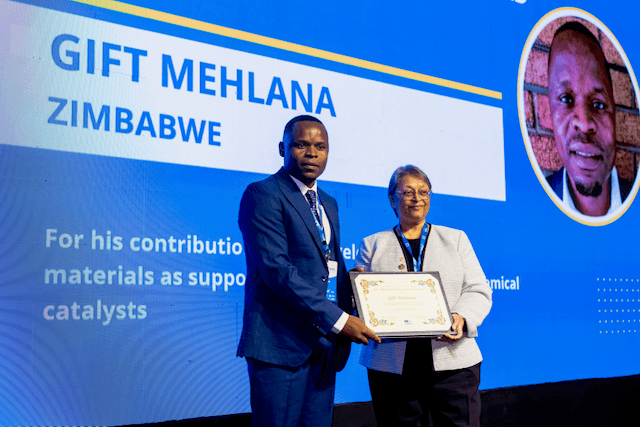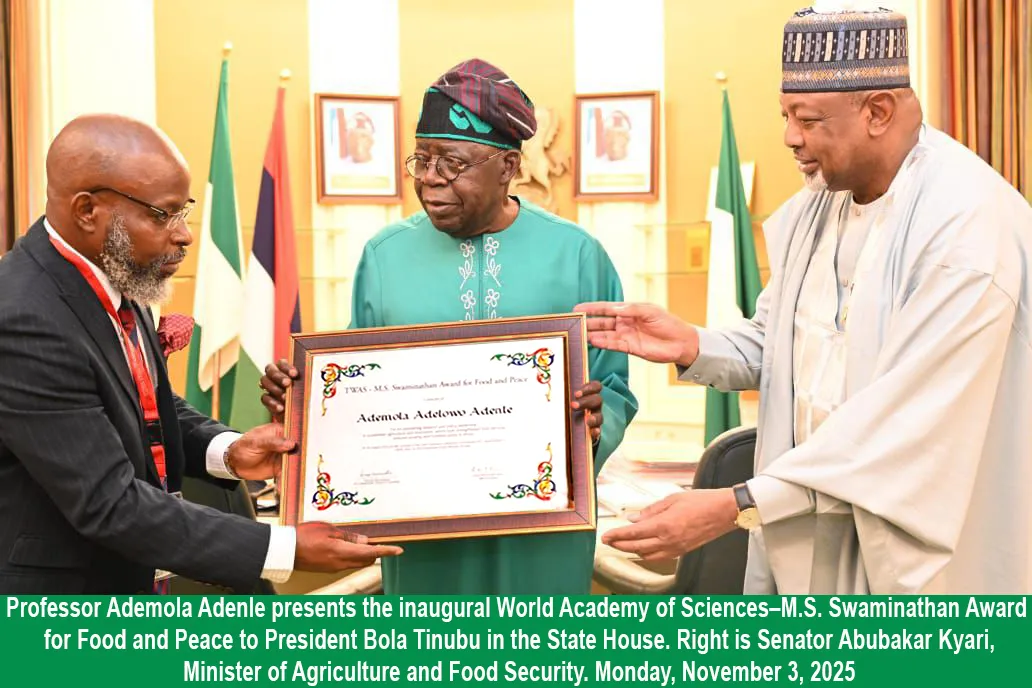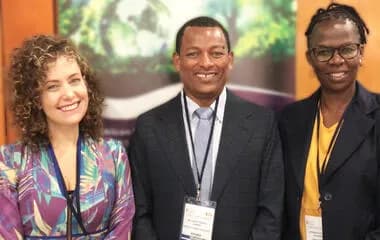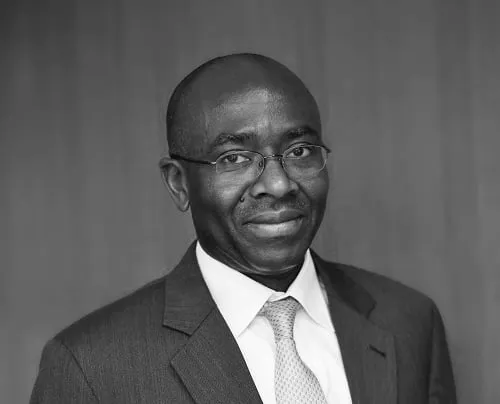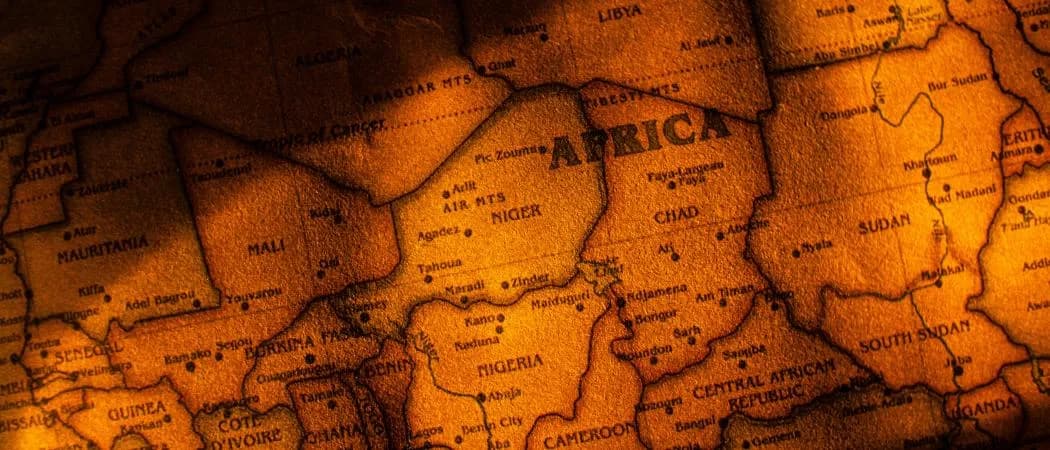News
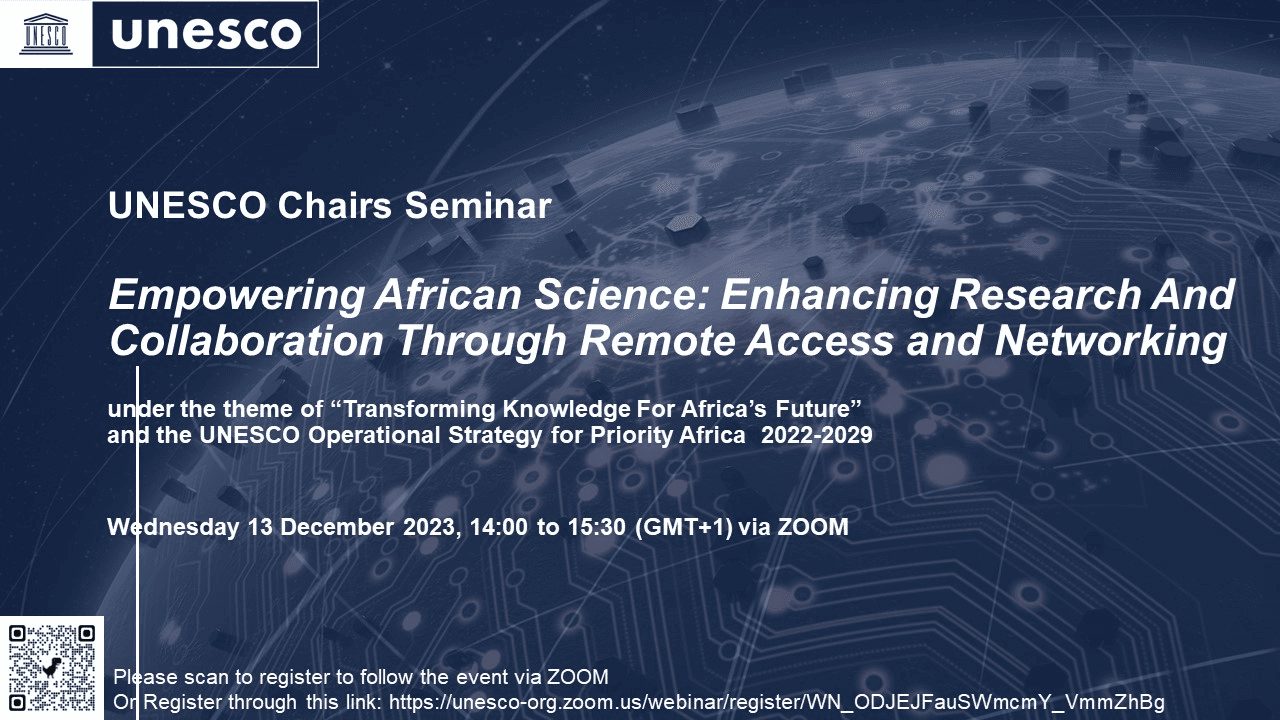
The global importance of fostering global scientific collaborations has increasingly emphasized the need to break down barriers hindering progress. For scientists in Africa, the lack of access to cutting-edge research facilities, laboratories, specialized equipment, and data sources has been a persistent challenge. In a concerted effort to address these challenges faced by scientists in Africa, UNESCO recently concluded its groundbreaking seminar series focusing on the continent - the UNESCO Chairs Seminars.
Transforming knowledge for Africa's future
From September to December 2023, the UNESCO Chairs Seminars delved into key issues under the theme "Transforming Knowledge for Africa's Future." This initiative also aligned with the African Union's 2024 Theme, dedicated to education. The spotlight of this series was the Seminar titled “Empowering African Science: Enhancing Research and Collaboration through Remote Access and Networking,” which saw the attendance of Professor Lise Korsten, President of the African Academy of Sciences (AAS), and Professor Malik Maaza, AAS Fellow.
Against the backdrop of the seminar's thematic exploration, Professor Lise Korsten delivered a keynote address, “Harnessing the potential of remote access to scientific facilities to promote the development of the African scientist”. Her address underscored the AAS’ unwavering commitment to supporting and propelling scientific excellence across the continent.
Complementing this, Professor Malik Maaza played a pivotal role in the Panel Discussion on "Enhancing Scientific Collaboration in Africa." offering nuanced perspectives on the challenges and opportunities inherent in fostering partnerships.
Paving the way for global collaboration
Despite facing multiple barriers, African scientists have demonstrated resilience and excellence, making significant contributions across various fields. However, restricted access to the tools and resources necessary for groundbreaking research has limited their ability to contribute effectively to global scientific advancements.
As the seminar series concluded, the hope is that the insights gained, and discussions held will pave the way for future initiatives and partnerships.
Watch the seminar here
